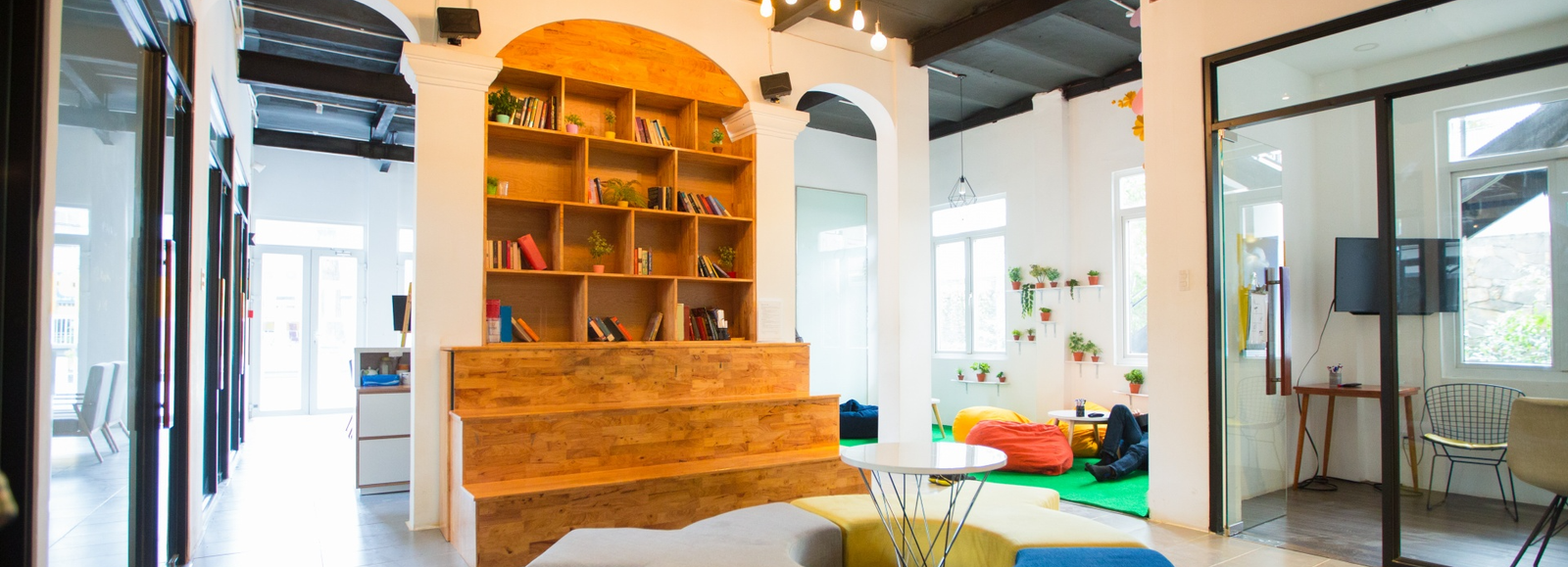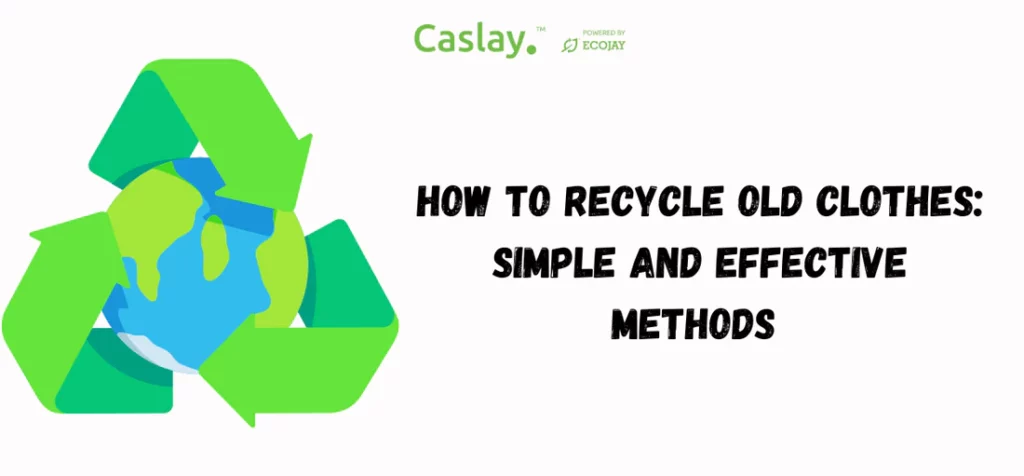
Methods To Recycle Old Clothes
Before we consider discarding old clothes, it’s crucial to recognize our primary goal: to minimize our contribution to overflowing landfills. While natural fibers like cotton, silk, and jute can be composted, many garments are made from blended fabrics that are not biodegradable. This highlights the importance of understanding how to recycle old clothes effectively. The first step is to sort through your wardrobe to identify what can be reused, recycled, upcycled, or reduced. By implementing these strategies, you can significantly decrease the amount of clothing waste that ends up in landfills, helping to protect the environment and promote sustainable fashion practices.
In the US alone, data gleaned from textile waste management has shown that 100 pounds of old clothing are thrown every year. Of this there are almost 17 million tons of textile waste, 11.2 million tons made it to landfills and the majority of waste is old clothing. Worse, 95% of used textiles can be recycled, but 85% end up in landfills anyway. We need to be mindful of this. This happens across nations in varying percentages perhaps.
Donating is a good thought
There must be a pile of clothes that are intact but undergone their fair share of wear and tear and can be kept aside for donating. We can look at the people around us, who serve us, like our domestic help, others carrying out chores, local charities and NGOs, and pass on the bulk for reuse for those who actually need the clothing. It is helpful to keep a list ready, of centres, organisations and NGOs that accept old clothes, that fall within your pin code. However, we all have our favourite charities and organisations/associations that one would have to drive to. So be it.
Donation Boxes for old clothes
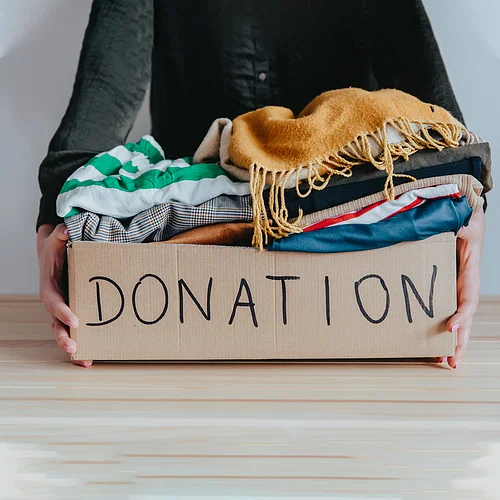
Organisations like Salvation Army, Oxfam, Bharat Seva Ashram, Ramakrishna Mission and umpteen number of NGOs accept clothes for donation. Organisations are also careful and accept clothes that usable, so best to ensure they are not torn or threadbare. This is the first and the easiest step to take to stop the hand-me-downs from reaching the landfill.
Recycle is a concept that is picking up in India thanks to individuals, start ups and NGOs who have made it their mission towards greening the planet.
Goonj collection box
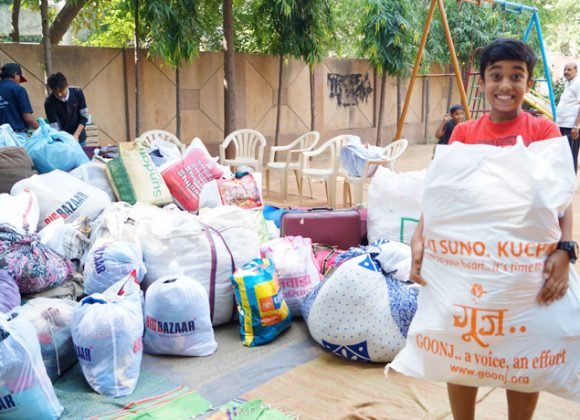
Textile recycling is not as widely known, Goonj in India is one such organisation that has a massive collection and drive towards this activity. Their very visible donation boxes placed at large retail outlets and shopping complexes and other centres, encourage the public to donate clothes generously. Overseas organisations such as Blue Jeans Go Green recycles old denim into insulation while other companies recycle all types of fabric. I:CO (short for I:Collect) is a German textile recycling company that collects textile items from participating retail partners, and reuses or recycles them. They currently collect clothing and shoes in more than 60 countries.
Clothing Swap

For a fun-filled day with friends and family, swap or exchange clothes with someone who is more or less your size. This is one way of getting a slight wardrobe makeover and more importantly, such moments generate tremendous comradery and ‘we feeling’.
However, in the days of social distancing, best to have such a session out in outside with a lot of space and open air and stagger the timings of those participating. Best to host a virtual exchange and arrange contact-free delivery! The ‘new normal’, for you.
Repair and Repurpose
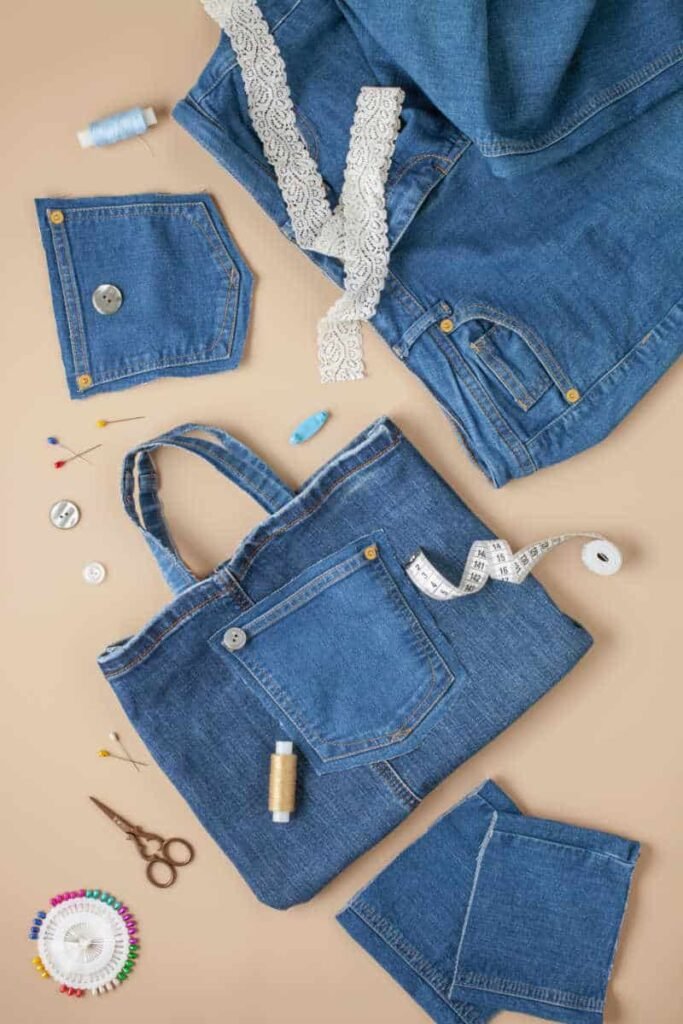
Clothes that need minimal repairing and patching up, should first be maintained. For damaged or ill-fitting clothes, look up DYI YouTube tutorial for recycling and repurposing your old clothes. If tailoring services are required, go to the local alteration tailor to cut and sew up whatever is being recreated. One recommendation is to downgrade your clothes to loungewear. Repurposing old clothes into loungewear is not only cheaper, it is eco-friendly as less will be purchased, less waste. With the recent stay at home routine, loungewear is a useful and a comfortable option.
Masks, bags, cushion covers, quilted blankets and many more can be repurposed from old, discarded clothes.
Upcycle
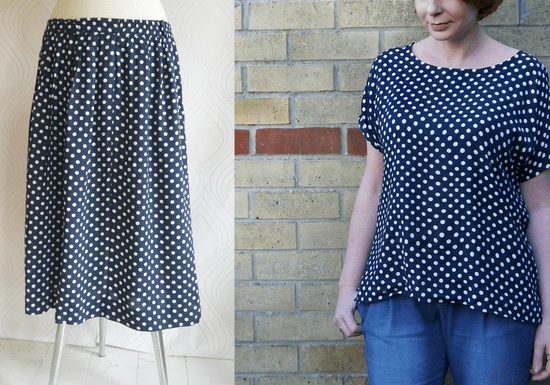
You can upcycle your old t-shirts, blouses, and other discarded clothing into new, creative items with a bit of imagination. Simple projects like no-sew tote bags, reusable produce bags, and wall art are great starting points, while more advanced creations like beanies, dog toys, and stuffed animals made from socks and pillowcases offer exciting challenges. A patchwork quilt can also be a rewarding endeavor, allowing you to combine various fabrics into a cozy keepsake. The possibilities are endless, and inspiration is just a click away! Platforms like YouTube and Pinterest provide countless tutorials to spark your creativity, helping you promote sustainable fashion practices while showcasing your unique style.
Compost

Clothes made of natural fibers such as cotton, linen, silk, and wool can be broken down and composted, making them an environmentally friendly choice. However, any items made from blended fabrics should be removed from the composting pile, as they do not decompose naturally. Additionally, accessories like zippers, buttons, and tags must also be excluded since these materials are non-biodegradable and can disrupt the composting process. To make the most of your composting efforts, consider separating your natural fiber clothing from synthetic blends and removing any non-biodegradable components. This way, you can contribute to a healthier planet while also finding innovative ways to repurpose or recycle the non-compostable items.
Resell

Keep old textiles out of the landfill by reselling old items that have remained as good as new and even have the price tags on. Online and offline options are available. Facebook Marketplace apps like ThredUP, and eBay are helpful here. This is also an easy way to make money by selling what you no longer need and a wider audience can be reached by using these online platforms.
Retail Take-Back Programs

From time to time, Big Bazaar the hypermarket carries out exchange programmes in-store where your old clothes and items can be exchanged for discount vouchers for future purchases.
Some companies have instituted a take back program in their stores where you can drop off your old clothes at their stores and they recycle it for you. H&M accepts any brand and condition of old. Madewell accepts any brand of old jeans at their store with their denim recycling program where they are partnered with Blue Jeans Go Green.
To do your part towards and sustainable living reach out to local organizations and local government agencies and participate in their projects that to see if they have any projects related to your work that may be in need of clothing donations.
And you can always donate to local shelters to give to the people in need in your community. Here are some names and you can look up their social media pages: Clothes Box Foundation; Share At Door Step; Apang Manav Mandal; Mahesh Foundation; Clothes for Help







